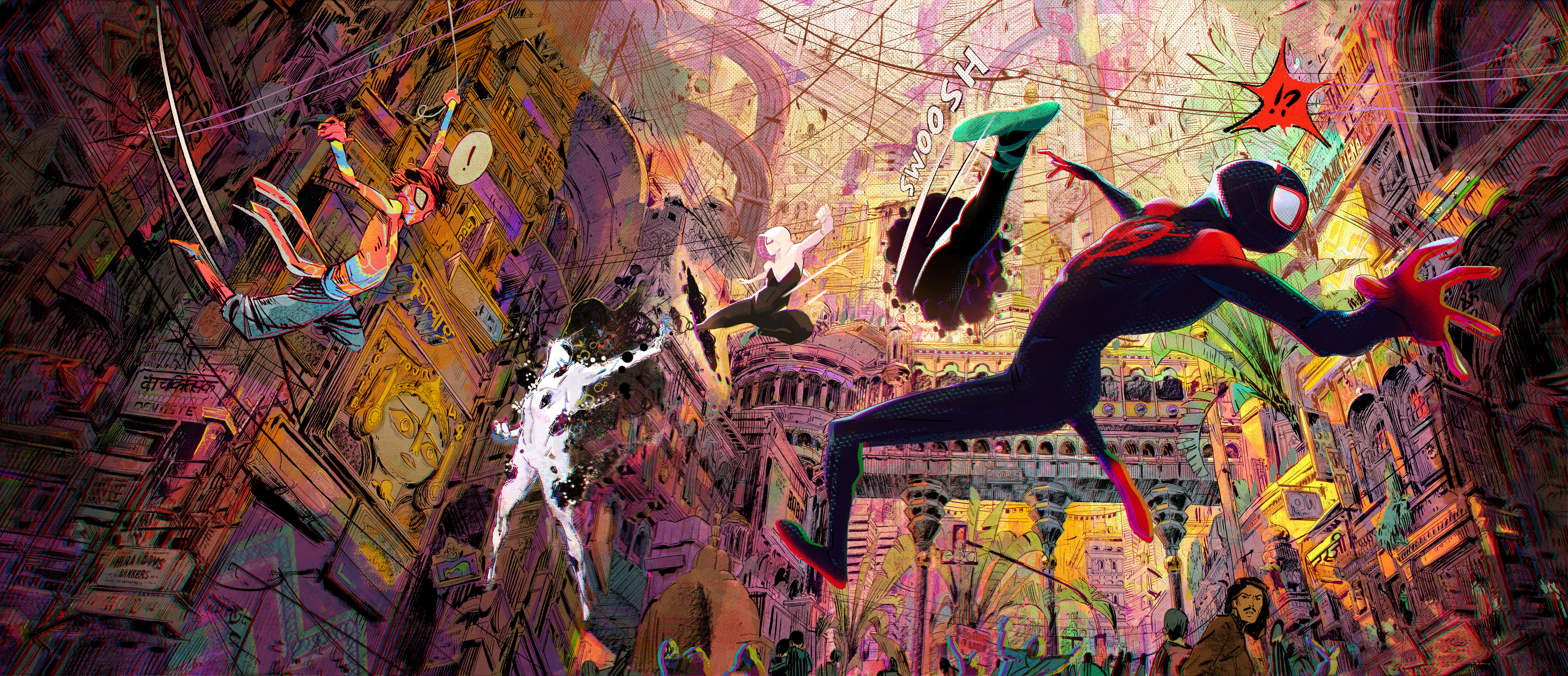
Warning: This article contains spoilers.
Modern animated films have a propensity to establish canonical graphics for audiences to become accustomed to over the course of the film. Spider-Man: Across The Spider-Verse flips the narrative, submerging audiences in a breathtaking depiction of multi-dimensional visual tones (this is the multiverse, after all) and weaving in and out of the abstract pop-art-like universes we’re about to enter.
The film’s central conflict itself lies in Miles Morales, a Black Latino teenager from Brooklyn, and his consistent knack for subverting the Spider-Man canon. Morales was never supposed to be Spider-Man. He was never supposed to be bitten by that spider, he’s told by Miguel O’Hara (Oscar Isaac). And he was never supposed to save a certain police captain, for in doing so, he’s disrupted an entire web of converging destinies for every Spider-Man in every universe.
This development is a pivotal shift from Morales’ arguments with his parents over grades, school and tardiness, but a plot arc strengthened by these early exchanges nonetheless. The son of a Puerto Rican mother and a Black police officer, Morales is who he is because of his family, and it is this love for his family that makes him unable to conform to the whims of the multiverse’s bureaucracy of Spider-people.
Gwen Stacy is also fleshed out with more nuance than in the original film, giving us an expansive perspective into the soul underneath her goth punk-rock drummer persona. We learn of the loss of Stacy’s best friend – her universe’s very own Peter Parker – and in a heartbreaking end to the film’s prelude, how she’s falsely accused by her police captain father for murder.
The threads of connection we saw between Stacy and Morales in Spider-Man: Into the Spider-Verse are spun deeper in this iteration – ties of family, identity and friendship linking their bond.
And yet even in its brooding, film-noir bursts of heaviness, this sequel never feels too concerned with the weight of living up to its predecessor’s success. Spider-Man: Across The Spider-Verse is its own narrative, balancing emotional resonance and drippy doses of pop culture, drama and memes galore.
Jake Johnson returns as the bumbling mentor to Morales, now with both an infant he insists on bringing to every fight scene and a more sober outlook on life.
“If not for Uncle Ben, most of us wouldn’t be here,” he tells Morales.
What at first glance appears to be a movie gearing up for a conventional showdown with The Spot, a mutant-like, portal-wielding villain, becomes a subtle and engaging fluctuation of genre; trading the cookie-cutter Marvel mold for a more compelling narrative. What’s in store instead is a tale in which Morales is at one point hunted by hordes of every Spider-person imaginable – Spider-horses, Spider-cats, a British Spider-rockstar voiced by Daniel Kaluuya.
As these comic-book-esque sequences of aesthetically-engrossing characters abound, so too do the stakes of the story. The newest progression in the Spider canon is the fated death of Brooklyn’s recently-promoted police captain: Miles’ father.
Bleeding complexity into the narrative is the choice Morales is left with.
If the roaring audience at the pre-screening I attended is any indication, the directorial trio of Joaquim Dos Santos, Kemp Powers and Justin K. Thompson has done a few things right, and the keys to the Spider-verse franchise are in good hands.